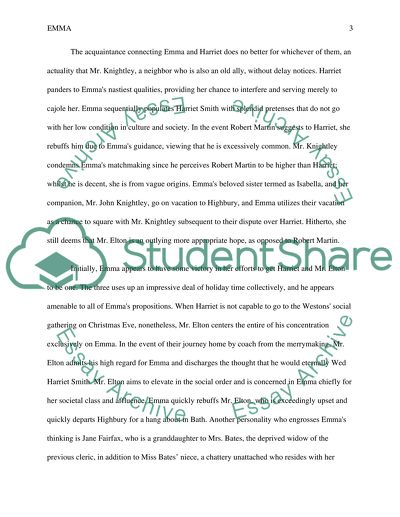Cite this document
(“Jane Austen's Emma Research Paper Example | Topics and Well Written Essays - 2250 words”, n.d.)
Retrieved from https://studentshare.org/literature/1399577-jane-austens-emma
Retrieved from https://studentshare.org/literature/1399577-jane-austens-emma
(Jane Austen'S Emma Research Paper Example | Topics and Well Written Essays - 2250 Words)
https://studentshare.org/literature/1399577-jane-austens-emma.
https://studentshare.org/literature/1399577-jane-austens-emma.
“Jane Austen'S Emma Research Paper Example | Topics and Well Written Essays - 2250 Words”, n.d. https://studentshare.org/literature/1399577-jane-austens-emma.


